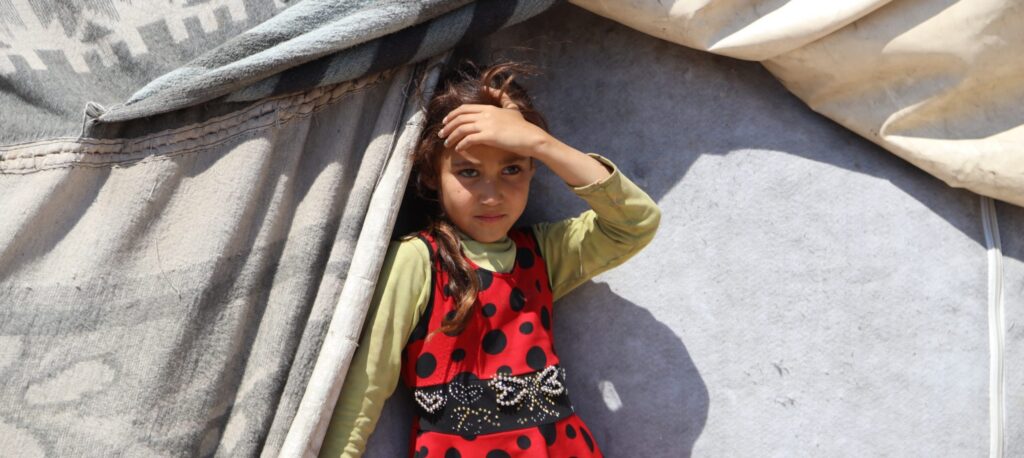Updates & Press
Blog Latest | June 20, 2022
A tale of abuse and solitude: Syrian women mental
Author | MedGlobalComms

Salma is only thirty years old, but her eyes show she is tired. Her scars recount a story of displacement, abuse and suffering that is sadly common among many Syrian refugees and displaced women.
Together with her family, she was forcibly displaced from her home back in 2018, and since then she has been living in a refugee camp in northern Syria. Raja, her husband and their two children live in a tent that lacks any basic needs. She feels alone, does not have any friends and does not speak to her neighbors. In addition to the daily life stressors that she faces derived from her living conditions, she is frequently abused by her husband. This combination of challenges has pushed Raja several times to attempt to suicide.
Salma’s suffering is familiar to many Syrian refugees and displaced women who face similar challenges on a daily basis. Eclipsed by the primary urgent needs of food, shelter and healthcare, mental health is yet another victim of conflicts and a neglected part of humanitarian responses. More than ten years of conflict have left Syria without healthcare infrastructure; notably, mental health services are almost nonexistent. However, mental health needs are rising. According to the World Health Organization (WHO), one in 10 people present a mild to moderate mental health condition while one in 30 are likely to suffer from more severe conditions. Despite that, it is estimated that 75% of those that are in need of mental health treatment do not receive it at all.
Women like Salma are not only exposed to all the traumas experienced by those living in conflict settings, including bombing, siege, displacement, the loss of loved ones, and separation from the family, they also face specific challenges that impact their mental health. The lack of economic opportunities, widespread domestic violence, verbal and emotional violence and economic vulnerability are factors that highly impact Syrian women’s and girls’ mental health. The situation is particularly harsh for divorced and widowed women, and can lead to cases of sexual exploitation, abuse and early forced marriage.
Salma was lucky to be able to receive psychological treatment from mental health professionals working in one of the facilities supported by MedGlobal. She was diagnosed with severe depression and was treated and supported with the needed medication and a case management plan to help her with different basic life and psychosocial needs. However, there are many Salmas in northern Syria who are not able to get the care they need and deserve.
MedGlobal has been present in Northwest Syria since 2018. Together with our partners, we provide comprehensive mental health and psychosocial support services (MHPSS) which include individual and group psychosocial support activities, outreach and awareness raising on the importance of mental health, specialized mental health services through specialized doctors, specialized mental health services for severe cases that require hospitalization, rehabilitation for substance use and capacity building on different mental health topics. We provide psychosocial support services in our primary health centers and mental health services in our Al Bab, Kansafra Camp and Tal al Hajar clinics. As well, we have a network of community health workers that support in raising awareness about mental health and a mobile team for outreach on psychosocial support activities. Lastly, we established Northwest Syria’s only rehabilitation unit for substance use in partnership with Physicians Across Continents (PAC), which provides inpatient and outpatient specialized mental health services at Ezaz Hospital.


